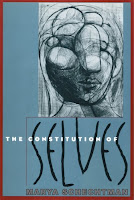Floridi's Open Problems in Philosophy of Information, Ten Years After
Special Issue "What Is Information?" A special issue of Information (ISSN 2078-2489). Type of Paper: Article Title: Floridi's Open Problems in Philosophy of Information, Ten Years After Authors: Gordana Dodig Crnkovic and Wolfgang Hofkirchner; E-Mails: gordana.dodig-crnkovic@mdh.se ; wolfgang.hofkirchner@sbg.ac.at Abstract: In his article Open Problems in the Philosophy of Information (Metaphilosophy 2004, 35:Issue 4), based on the Herbert A. Simon Lecture in Computing and Philosophy given at Carnegie Mellon University in 2001, Luciano Floridi presented a research programme for the Philosophy of Information in form of the following eighteen open problems: P.1: What is information?; P.2: What are the dynamics of information?; P.3: Is a grand unified theory of information possible?; P.4: How can data acquire their meaning?; P.5: How can meaningful data acquire their truth values?; P.6: Can information explain truth?; P.7: Can information explain meaning?; P.8: Can (f...


